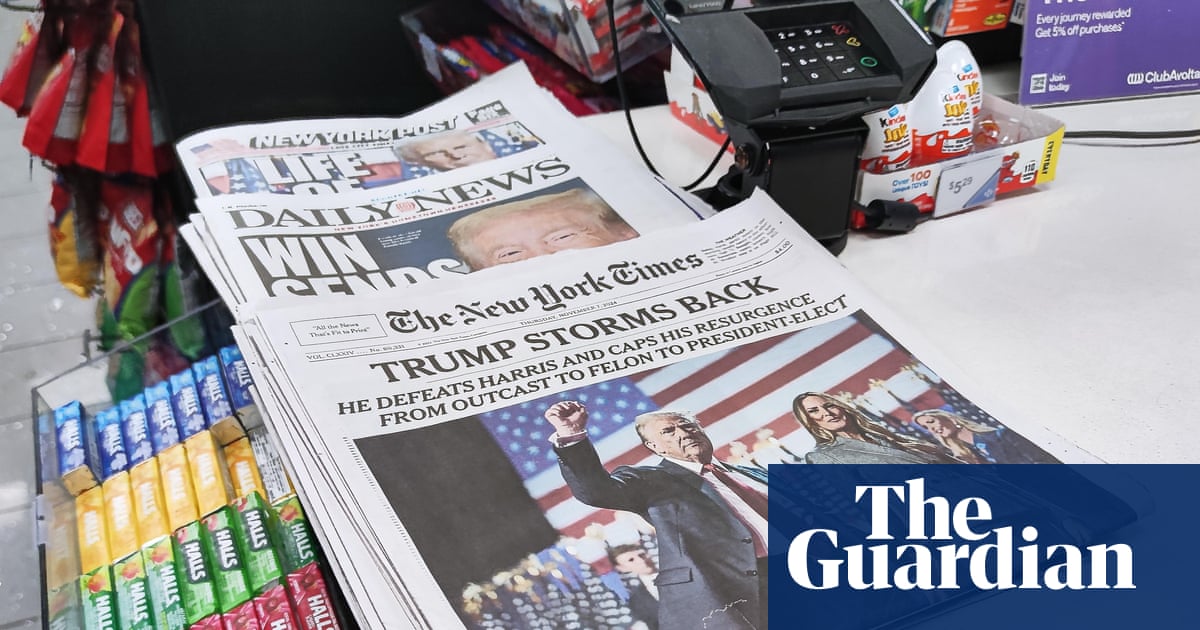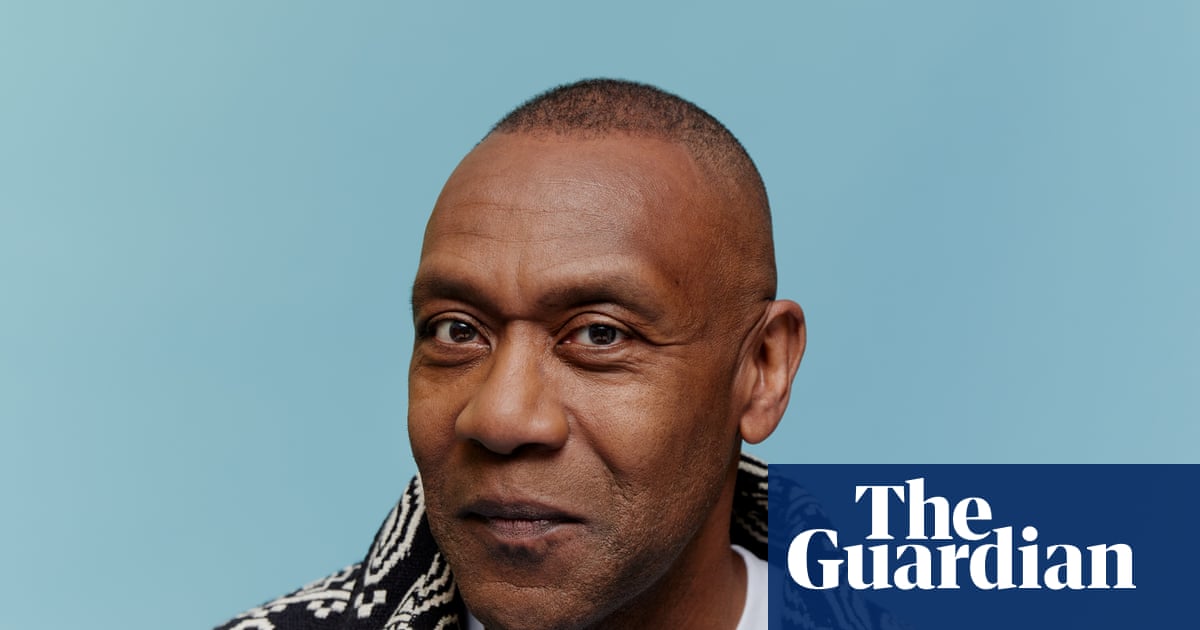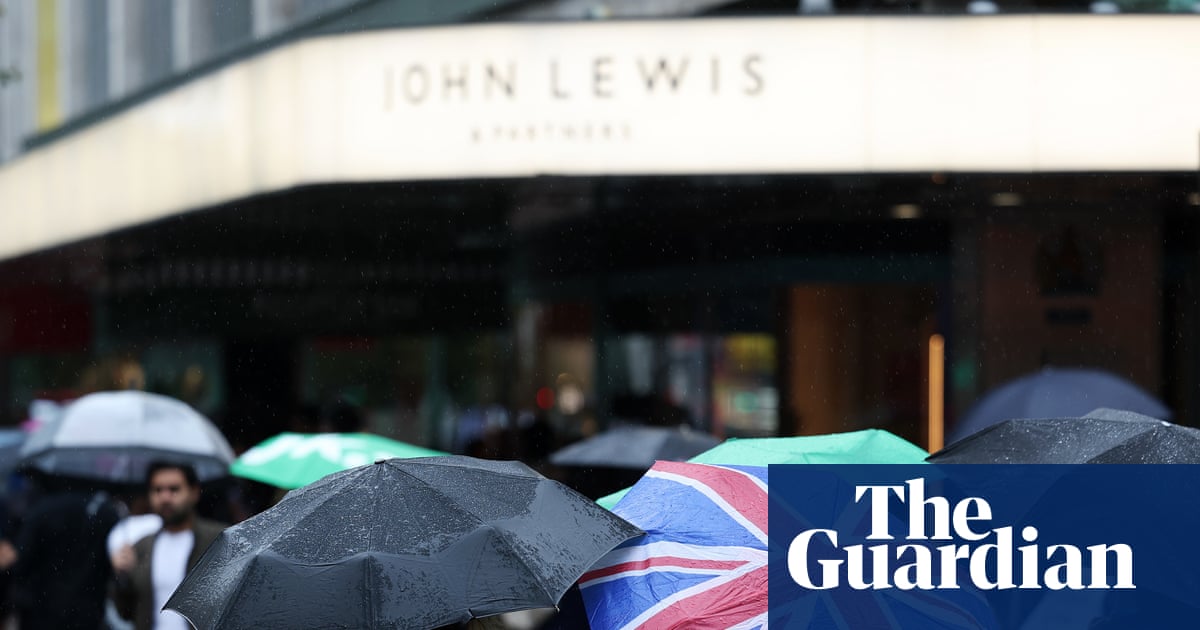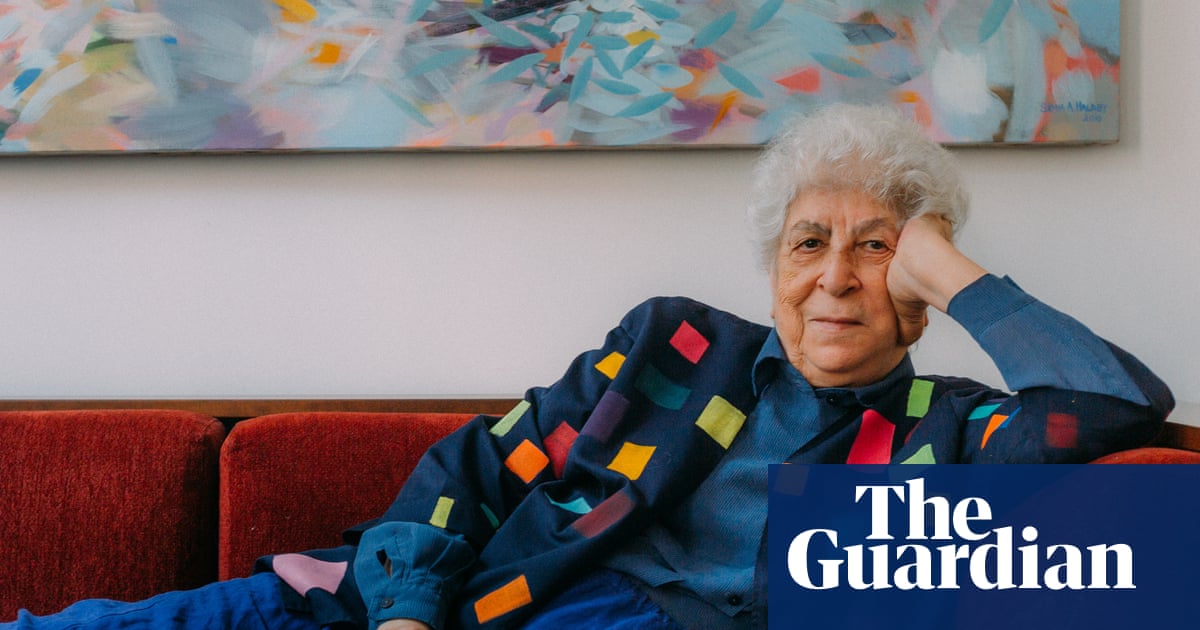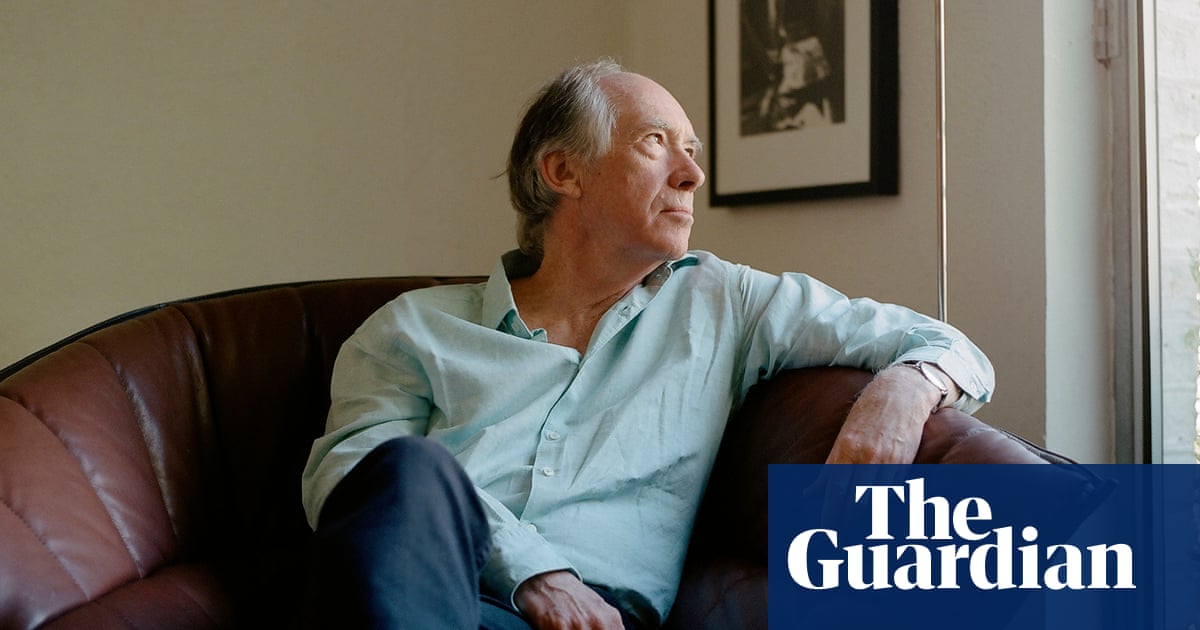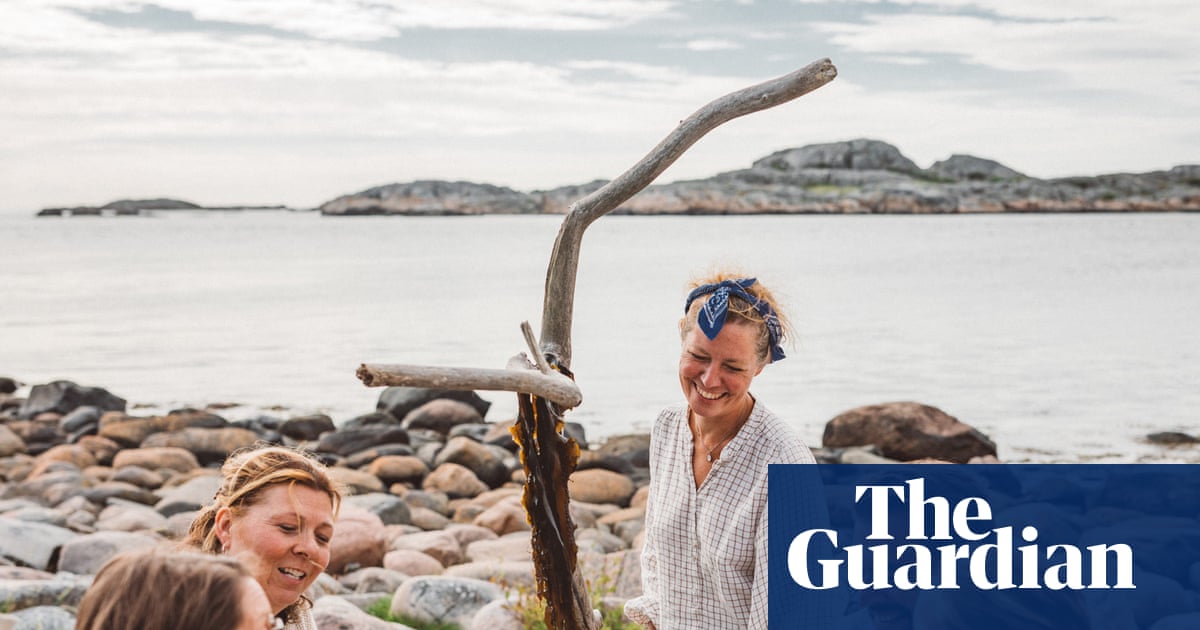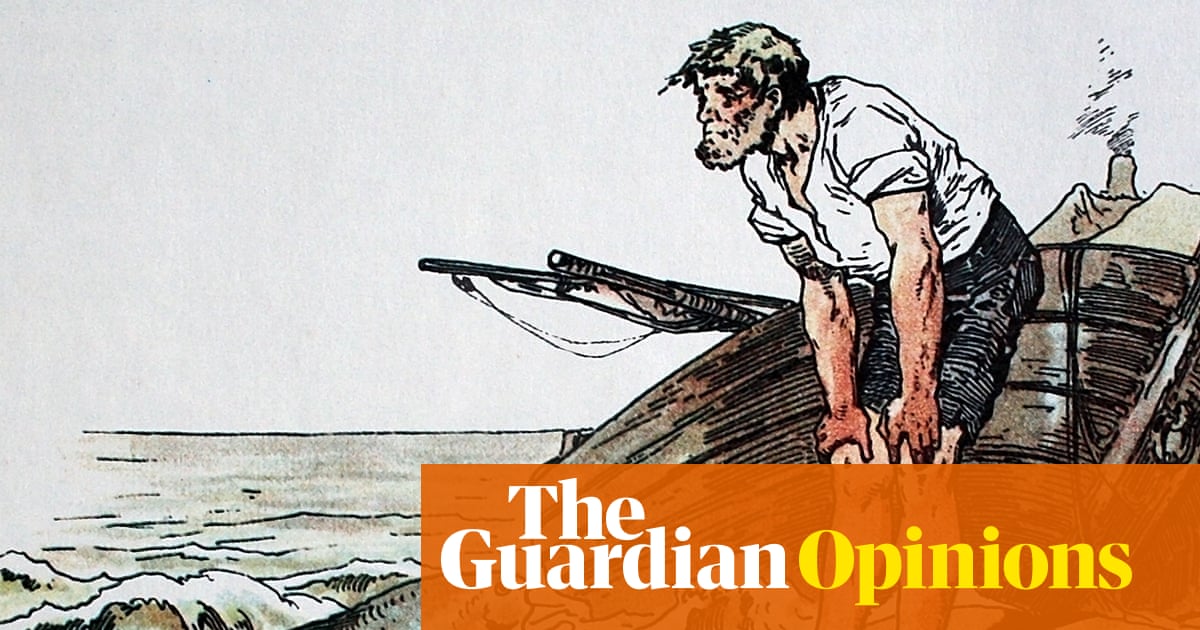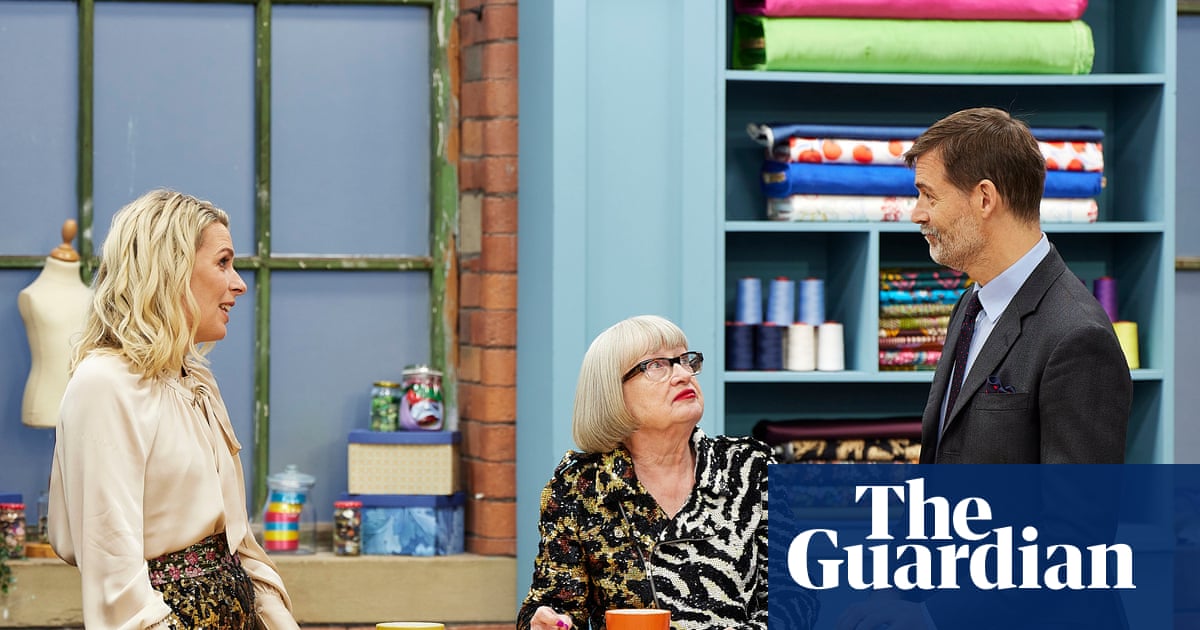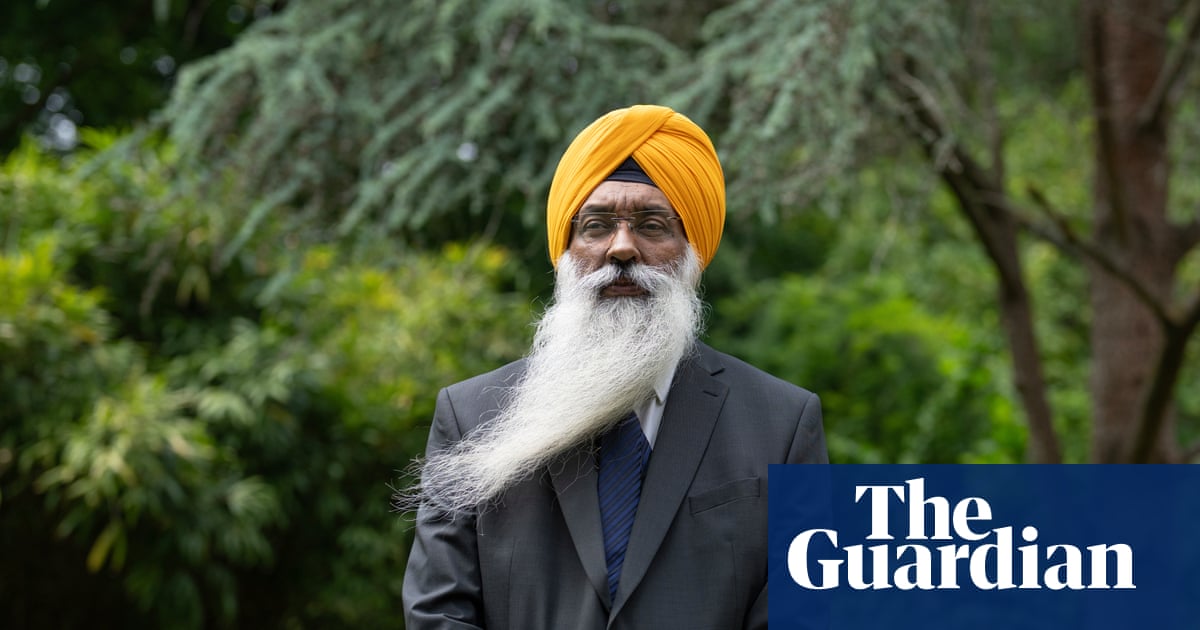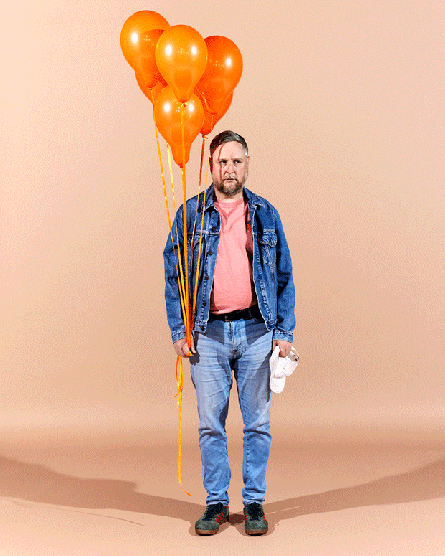
No, Tim Key doesn’t know why he’s dressed as a pigeon either. In Mickey 17, triple-Oscar-winner Bong Joon-ho’s recent sci-fi blockbuster, the comedian plays a man desperate to join a mission to colonise the ice planet Niflheim. The next thing he knows, he’s on the spaceship – inexplicably trussed up in a luxuriant pigeon suit and acting as the expedition leader’s lackey. Can Key shed any light on this turn of events?
“No I can’t,” he says, decisively. He enquired about his character’s outfit during his first meeting with Bong. “And he laughed and didn’t answer.” On set, Key says he “shuffled over in my costume” and asked again. “And he laughed again.” At the premiere, the Parasite director gave Key “a big hug, and then I said: ‘Just going back to this pigeon thing … ’ and he laughed again. I don’t think I’m going to ask him any more.”
Despite not being privy to even the most basic information about his character, Key certainly made Pigeon Man his own. It’s difficult to describe his performance in the film, which stars Robert Pattinson, Toni Collette and Mark Ruffalo, as anything other than very Tim Key-y: it’s the velocity of his sentences, the raising of the eyebrows, the combination of boyish eccentricity, melting desperation and a tendency, when pushed, towards bone-dry belligerence. This singular mode is the common denominator in the 48-year-old’s sprawling CV: present in everything from his criminally underrated sketch show Cowards to his Edinburgh award-winning live act to his pitch-perfect stint as Alan Partridge’s Sidekick Simon.
There is something ineffable about Key’s comedic presence – even a legend like Steve Coogan has admitted that upon meeting his future co-star he struggled to work out “why what he was doing was funny”. While the Partridge gig did give Key a profile boost, this unpinpointable idiosyncrasy has kept him a cult figure, even within British comedy. Now, improbably, it looks as if it might make him a mainstream global star.
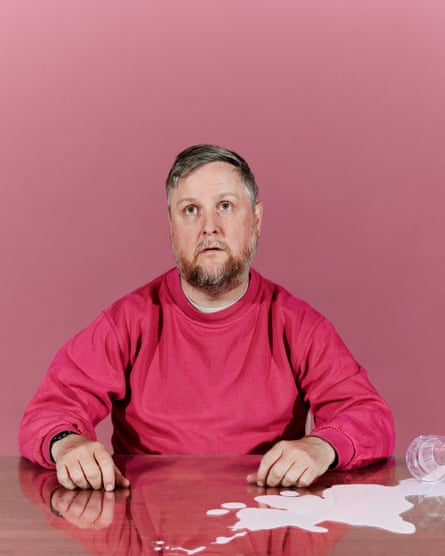
It’s not just decorated directors who have become enamoured of Key (Bong recently described a collection of his poetry – which renders the surreal, the extreme and the utterly mundane in pithy yet jarringly prosaic verse – as “one of the most amazing things I’ve ever read”). America is cottoning on, too. The US’s embrace of offbeat UK comedy talent has been gathering steam for a while (those in particularly high demand include Phoebe Waller-Bridge, Jamie Demetriou, Richard Gadd, Will Sharpe, Brett Goldstein and Richard Ayoade), but Key’s inordinately wry stylings seemed particularly unlikely to translate. Apparently, not the case. Key spent last autumn in LA filming The Paper, the much-anticipated sequel to the US version of The Office, in which he has a major role. Soon after, his new film The Ballad of Wallis Island premiered at Sundance to a standing ovation (“One of the more overwhelming things that’s happened to me”) and has since been released across the Atlantic to glowing reviews.
Based on Key and his Cowards colleague Tom Basden’s 2007 Bafta-nominated short, the film sees reclusive lottery winner Charles (Key) pay his favourite musician, indie-folk has-been Herb McGwyer (Basden, who also wrote all the film’s legitimately beautiful songs), to play a gig on a tiny Welsh island. Unbeknown to McGwyer, Charles has also invited his ex-collaborator and old flame Nell Mortimer (Carey Mulligan) in an attempt to get the band back together. Key admits it’s a “quirk” that this deeply British film was released in the US first, but is “surprised and delighted” at its reception. So am I, considering it shouts out Monster Munch, Mick Hucknall and BBC 6 Music presenter Gideon Coe. Key is still unsure how many of the jokes will land, “because there’s no chance an American would laugh at any of those things”. Ultimately, though, the film’s quintessential Britishness – it also features Olympic levels of emotional constipation – “felt like a positive rather than a negative”. With that thought, he begins to doubt himself. “Maybe we’ve accidentally made a film that only works in America.”
Time will soon tell. Key is now back on home turf, his local coffee shop in Kentish Town, north London, ahead of the film’s imminent UK release. It’s a scorching May day and he is dressed for it: T-shirt, shorts, bright stripy socks, colourful trainers. Softly spoken and given to sudden, bashful smiles, he is feeling “self-conscious” about chatting in the silence of the cafe’s informal co-working space, where he sometimes writes himself. On stage, Key’s alter ego is petulant, commanding and bemusingly elliptical. In real life, only the latter remains. Last night, he tells me, he went to see the hit Gareth Southgate play Dear England, which he describes as “absolutely fine” and “not a problem” – a verdict that could be glowing, neutral or damning, I honestly have no idea.
Generally, though, Key plays it straight. He certainly doesn’t have the same compulsion to crack jokes as his character Charles, who seems powerless to stop the stream of dubious puns and inane chatter that spools out of him as he tries to smooth things over between Herb and Nell. Yet, alongside this general buffoonery, Key manages to convey Charles’s gradually revealed grief with the utmost subtlety and poignancy, in what I tell him is quite an incredible dramatic performance. “Oh wow,” he whispers, drowning the compliment in absurdly intense embarrassment. Seriously, though, he does “think there’s less difference between comedy acting and [dramatic] acting than you’d think. It’s all about finding the truth.” Having spouted such a luvvie cliche, he puts his head in his hands. “Oh my God.”

Key began his comedy acting career on a strange but indisputably triumphant note. After graduating from the University of Sheffield, he moved back to his home city of Cambridge and successfully auditioned for the Footlights comedy troupe – without mentioning his lack of student status. His peers – including Mark Watson, Peep Show’s Sophie Winkleman and his future Cowards comrades – did eventually find out, but by that point he was indispensable; they ensured he was still able to perform in their 2001 Edinburgh fringe production, which was nominated for the festival’s newcomer award.
In the intervening years, Key has worked steadily: there have been Radio 4 shows, the sketch series, a sitcom (2022’s The Witchfinder), a double act called Freeze with Basden, various Partridge iterations and myriad TV appearances. But his success has never felt like “a runaway thing” – at no point has he been “swept away” by a powerful industry tide and found himself “in a long-running sitcom or playing Lewis or something”. This means, at the end of every onscreen project, he still goes back to his solo work: the poetry books, the live shows. There are upsides and downsides. “You never feel like you’ve lost your way creatively; you might have lost your way financially …”
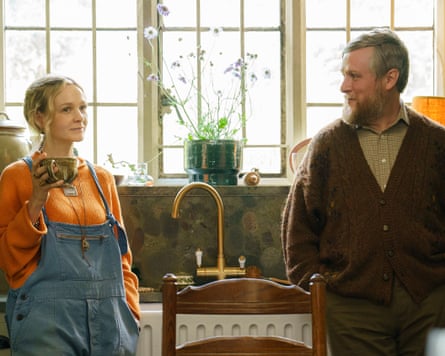
A case in point: Key has spent recent months finishing his new book, LA Baby, a semi-fictionalised, poetry-peppered account of his time spent filming The Paperin Hollywood last year. He looks panicked when I bring up the show – a mockumentary set at a failing Midwestern newspaper – and insists The Paper itself is “not relevant” to the book. So let’s just say LA Baby is a hilarious and often dreamlike chronicle of Key’s mounting insecurities about his inability to fit into his costume, do an American accent and generally act on an unnamed big-budget TV series.
Last September, Key arrived in LA for the first time, feeling “petrified”, stressed by the city’s ongoing heatwave and failure to cater for pedestrians (“I love walking around”). Living alone, he initially had no social circle and was only required on set half the week. The writing started as a “very enjoyable form of therapy” in the face of loneliness, clammy discombobulation and homesickness (the last one manifests in the book in imagined sightings of BBC news presenter Nicholas Witchell and an extended fantasy about an Only Fools and Horses cuckoo clock). It was a period that echoed his experience of the pandemic, when he started writing “to stay afloat” during months by himself in his north London flat: his anthology He Used Thought As a Wife covers Key’s time chugging beer, craving hugs and losing touch with reality during the first lockdown, interspersed with grotesque vignettes sending up governmental incompetence.
Mercifully, his isolation in LA was far more short-lived: by the end of the three-month stint, he was filming more frequently, had befriended his castmates and connected with one or two English expat comedians he knew from back home “who generously introduced me to their circle of friends. By the end of it, I had quite a nice little group.”
In The Ballad of Wallis Island, Key embodies another cartoonishly lonely character: Charles’s heartbreakingly solitary existence is best summed up in the image of him aggressively playing a solo game of swingball. Does Key consider isolation a recurring theme in his work? He seems doubtful. “I hadn’t noticed that. I don’t know. I don’t think those two things are linked. Maybe they are.” Does he find loneliness a creatively fertile state? “Dunno. Maybe. I think that’s more for you to say.” He doesn’t seem overly keen on analysing the prospect (or perhaps he’s just not a fan of introspecting in the company of journalists, which would be fair enough), yet it’s clear he does funnel his psyche into his work: he would be “interested” he says, to to re-read He Used Thought As a Wife, which he wrote during lockdown, “because I probably was going out of my mind, and it would be interesting to go back into it”.
Charles, on the other hand, isn’t especially autobiographical. For a start, he’s an obsessive fan – a compulsion Key doesn’t share: he never had any comedy heroes, let alone musical ones. That said, in a different life he can imagine himself “on the outskirts of comedy trying to make friends with [Taskmaster co-host] Alex Horne”. Also, he did get starstruck bumping into ex-England cricket captain Mike Atherton. “So I’ve definitely got it in me to fanboy.”
Another person Key seems slightly starstruck by is his co-star Mulligan. He and Basden co-wrote the film during lockdown, and the Oscar nominee topped the list of dream Nells. Key happened to have her personal email address; a few years prior she’d asked him to host a fundraiser she was organising. He’d actually declined – MCing a big event being something he’d “find really, really hard to do”. Still, he took a punt. Mulligan was unexpectedly keen; it turned out she was a longtime admirer of Key and Basden’s work – specifically, the pair’s Radio 4 series, Tim Key’s Poetry Programme. “It’s a deep cut,” he nods, mystified. During their US press tour, Mulligan would sometimes reference the show. “And I’d just be shaking my head thinking: ‘This is insane: the esteemed Hollywood actress is now talking about my poetry show with Tom Basden.’”
Mulligan may be the headline name, but The Ballad of Wallis Island’s real charm patently stems from Key and Basden’s decades-honed dynamic. This is perhaps why its wholesome parting message – meaning over money, kindness over ego, the true and the good over the shallow and the starry – packs such a punch. For Key, the achievement of having made the film is inextricably bound up with that bond. The first time he was asked in an interview to pick his favourite scene, he chose one with Mulligan. The second time, one with Basden. But “I found it really difficult to say it – I got really emotional. It’s easy to get blinded by the new and the fun. It’s also easy to get complacent and take for granted a friend who’s really, really talented. Not everyone has that.”
For all the lavish, baffling blockbusters, A-list co-stars and LA stints, making The Ballad of Wallis Island is proof of his longstanding good fortune – and a reminder “that the other, more famous people aren’t better than this person you had all along”.
The Ballad of Wallis Island is in UK cinemas on 30 May.

.png) 3 months ago
157
3 months ago
157
